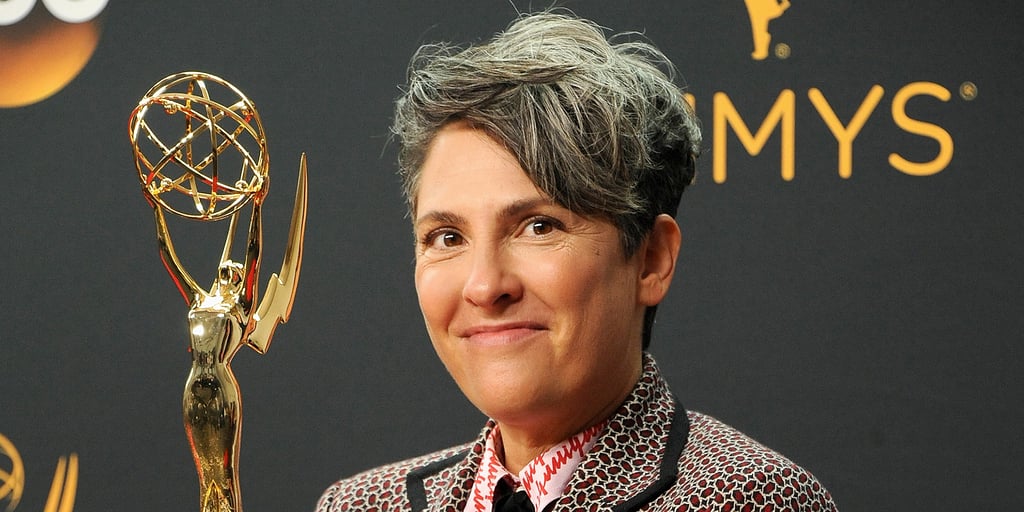Back when Transparent first premiered, I was one of the many people who was both glad to see a trans character being presented in popular media but also frustrated that a cis actor had been chosen to play the part. Since then, however, the cultural landscape has changed, and—in small, tiny, baby-step ways—Hollywood has changed as well, including the creator of Transparent, Jill Soloway. In a chat with The Daily Beast, Soloway shared her thoughts on trans actors and characters in Hollywood, as well as what she thinks about representation and the recent controversy over the casting of Matt Bomer as a trans woman character in Anything.
In a long answer to a question regarding her committing the same mistake back when she cast Jeffrey Tambor as Maura, the trans parent in Transparent. She said:
The only way I am able to defend my casting of Jeffrey is that the story of being the child of a trans person is my story to tell. But I understand why trans people are pissed at me. I appreciate how they have schooled me about the tropes that cis folk repeat: a trans woman looking in the mirror, putting on lipstick, hating her genitalia. It’s just not OK.
By touching on the incredibly tired old tropes there, Soloway highlights one of the biggest problems with having cis people tell trans stories: you only ever show the stereotypes, the inaccurate-yet-forever-perpetuated moments of a trans person’s life. The work created only serves to repeat falsehoods as opposed to helping to share brand new stories. There’s nothing innovative about the tropes that she mentioned or the ones like them; they’re tired for a reason.
As well, Soloway touched on how Hollywood has a responsibility to do its due diligence in searching for trans actors. She said, “At this point if you’re a filmmaker, you can’t just scan the landscape for a great trans actor and then shrug if you can’t find one. You have to seek out, find, identify, train, promote and protect trans people. It’s an issue of economic justice, class and access.”
Again, she does well to point out a lot of the hurdles in place preventing trans actors and actresses from being “found,” so to speak. Something that gets said a lot when people call out things like Bomer’s casting in Anything is that using a known actor (regardless of gender) would help promote and push the thought or idea of trans actors forward, that somehow their A-list or “star status” would somehow result in trans actors being found. You and I both know that’s not exactly how it works, and that continuing to do such a thing only perpetuates the cycle of keeping trans actors off the screen.
Stretching the issue a bit more generally, this problem also comes up in a lot in other industries. Take tech, for example. These issues plaguing the movie industry (can’t find good enough trans actors, etc.) are echoes of the problems the tech industry has had with regard to diverse and inclusive hiring practices. The most common defense tech companies hold up when they’re criticized for their lack of diversity on staffs is that they hired “the best person for the job.” If your idea of the “best person for the job” happens to only ever be white people, then it might behoove you to rethink where and how you’re searching. The same idea applies here.
It’s mighty interesting to see how Soloway’s thoughts have changed in the intervening years between when Transparent premiered and now. As well, Tambor’s statement of, “I would be happy if I were the last cisgender male to play a transgender female,” during his Emmy acceptance speech speaks to how it isn’t just Soloway who’s learned from the work of countless trans activists—the cast seems to have learned as well.
One hopes that such knowledge (and the continued pursuit of it) might help to make a Transparent an even better show. Given the fact that they’ve got a new season coming up this Friday, and now a grip of Emmys to show for their work, they’re likely to have some time on their hands to put that knowledge and these lessons to use.
(image via Shutterstock/Tinseltown)
Want more stories like this? Become a subscriber and support the site!
—The Mary Sue has a strict comment policy that forbids, but is not limited to, personal insults toward anyone, hate speech, and trolling.—
Follow The Mary Sue on Twitter, Facebook, Tumblr, Pinterest, & Google+.









Published: Sep 21, 2016 04:49 pm